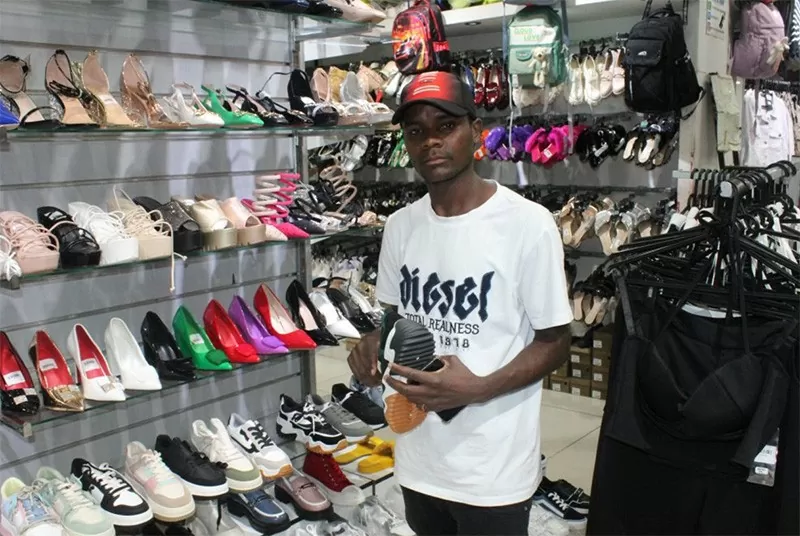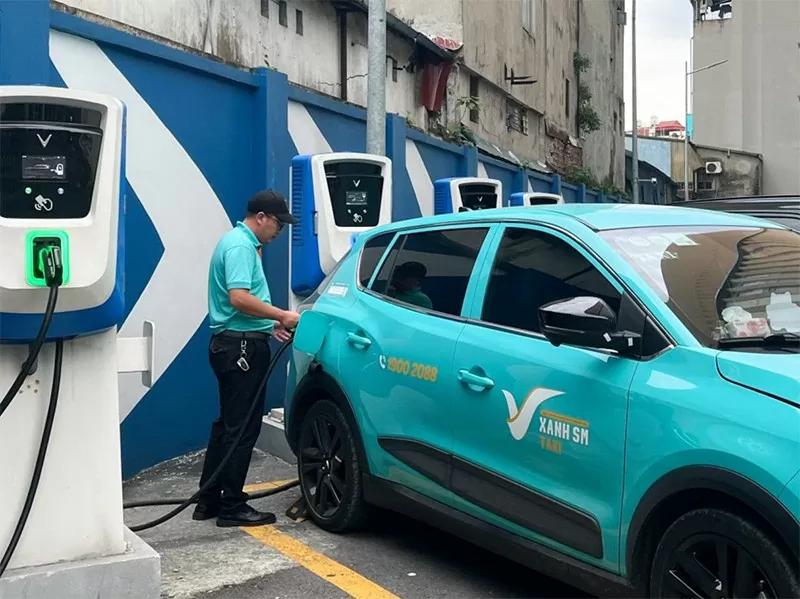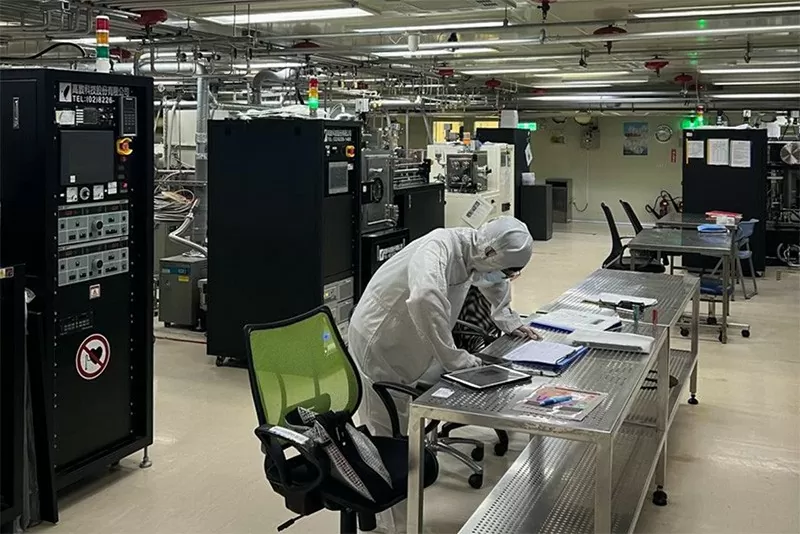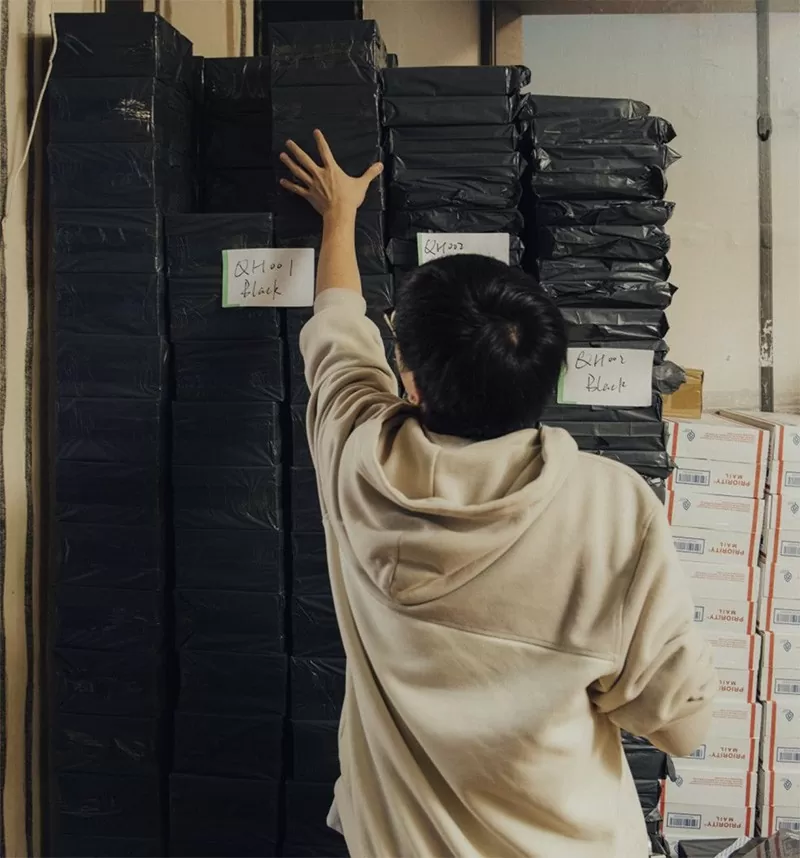From AI classrooms in Mali to electric taxis in Vietnam, people around the world are seeing opportunity in this year's biggest technological changes.
 |
In 2024, Row reports on some of the biggest changes in the tech industry that have transformed lives around the world: the rise of AI, Chinese companies expanding overseas, widespread adoption of electric vehicles, a growing creative economy , many startups becoming regional champions, and the operations of Silicon Valley tech giants around the world coming under increasing scrutiny.
Row spoke to people who have experienced these changes firsthand. They’ve started businesses, pursued new majors, and moved across the Pacific in search of better prospects in the tech industry. Here are some of the stories they shared with Row.
Drop-shipping made my struggling ecommerce business profitable
Saba Mika in Johannesburg, South Africa
 |
| Source: Kimbery Mutandiro |
Mika, 36, is a drop-shipper (an online retailer that doesn't keep any products in stock; he only places orders after customers express interest).
I have been drop shipping for over two years. I graduated with a degree in marketing from the University of Lilongwe in Malawi and moved to South Africa in 2018. After years of not finding a job, I started selling clothes. Before discovering drop shipping to source products directly online from China, I was reselling shoes and clothes from local stores.
With local resale, the profit margins are small and I often lose money. One day while scrolling through Facebook, I saw a friend posting items that he didn’t have. He didn’t have a store and wasn’t in the fashion business, so I asked him about it. He was the first person to tell me about drop-shipping and explained that he didn’t invest any capital into the business and all he had to do was post and wait for people to place orders. So I learned from him, connected with suppliers, and then started posting on Facebook Marketplace.
Now, I spend hours on e-commerce sites like AliExpress, DHgate and WeChat every day, searching for the most profitable fashion products, such as shoes, bags and clothes, to sell. I take screenshots and share them on Facebook and WhatsApp. I then place orders when my customers express interest. In a good month, I earn 20,000 rand ($1,074).
Drop-shipping has changed my life because I don't have to rely on local suppliers. I do everything online, both buying and selling. This business has saved me money, and when I have enough money, I will return to Malawi to settle down.
TikTok's Expanded Shopping Feature Gave Me a New Career in the US
Yan Quang Hoa in Los Angeles, USA
 |
| Source: Yvaine Ye |
Yan, 26, is a live-streaming expert from China who moved to Los Angeles in mid-2023 to capitalize on TikTok Shop's expansion.
I used to be an English teacher in Chongqing, China. After witnessing the growth of live shopping in China, I thought I could use my language skills to sell products to consumers overseas. At first, I live-streamed from China. In 2023, I moved to Los Angeles, where there are many TikTok Shop operators. I want to be closer to consumers.
Chinese streamers know what strategies work, but we tend to struggle with American cultural references. For example, in China, we tell people that certain clothes make you look skinny and pale, but here, people want to look curvy and tanned. And if someone is selling snow boots, they need to be able to say that they are suitable for New York or Michigan weather. Living in the US has helped me understand these things.
Over the past year, I’ve been running live shopping shows on TikTok, selling clothes, electronics, and home goods. TikTok Shop hasn’t grown as fast as I’d hoped. Most Americans aren’t used to live shopping or just want a bargain. But I think there’s still a lot of potential. We typically sell about $10,000 worth of products in a five- to six-hour session.
I really enjoy being a live streamer. I enjoy the process of writing scripts for every production, practicing my delivery, and using my emotions to impress the audience. My dream is to become America's Austin Li [a top Chinese live streamer].
Driving an EV taxi has improved my income
Dau Hoang Ha in Hanoi, Vietnam
 |
| Source: Lam Le |
Ha, 33, started driving for Xanh SM in March after witnessing the taxi company’s rapid expansion just a year after its launch. Xanh SM is the first all-electric taxi service in Vietnam.
I used to be a technician at an industrial sewing machine supplier. But after Covid-19, the company did not do well and my salary was not enough to cover the cost of living in Hanoi. I decided to talk to some Xanh drivers and heard that the salary was quite good. That's when I decided to become an app-based taxi driver. Another attraction is the low cost of the car and the low fees. We do not have to buy a car, just need to deposit 8 million VND. In addition, Xanh's marketing is very good. It is better to work for a company with many customers.
I drive 12–13 hours a day. The base salary is enough to qualify for social insurance, plus commissions for each trip. The commission increases as we reach higher sales thresholds, which motivates me to work harder.
Electric cars are perfect for taxi services because the daily operating costs are very cheap. Charging an electric car is about a third cheaper than a gasoline car. Xanh SM offers our drivers an unlimited charging subscription for 2.7 million VND a month.
I don’t think electric cars in Vietnam are a part of the near future for all types of drivers. For widespread adoption, you need better infrastructure. You also need more brands to compete. In Vietnam, there are some new companies, but because they don’t have a good charging network, it’s hard for them to compete. If you want to see what the future looks like, look at China.
AI Tools That Make Me a Better Teacher
Alou Dembele in Bamako, Mali
 |
| Source: Annie Risemberg |
Dembele, 27, uses AI to promote the learning of Mali's local language in schools, after French was removed from the country's official language list. Dembele is also an engineer.
I am a volunteer teacher. I spend my afternoons reading stories to children in a community schoolyard in Bamako, the capital of Mali. I am part of RobotsMali, an initiative that uses AI to create learning materials in local languages.
RobotsMali began creating books in Bambara, the most widely spoken local language in Mali, in 2023. We used ChatGPT to generate stories in French and then translated them into Bambara using Google Translate. The team then carefully selected locally relevant images to accompany the stories using Playground, an AI image generator. We made sure to avoid prompts that produced Eurocentric results or stereotypical depictions of Africans during the book production process.
Once produced, the books are distributed to schools across Bamako. AI has changed my life, both professionally and personally. It has been a huge transformational tool in my day-to-day work, for example by applying it to performance assessments. As a teacher, the books we create with AI help me personalize learning for my students. I can track individual progress, identify strengths and weaknesses, and tailor my courses to meet each student’s unique needs. While AI doesn’t replace what I’m supposed to do as a teacher, it does save me a lot of time.
The semiconductor boom brought me to Taiwan (China)
Hans Juliano in Hsinchu, Taiwan (China)
 |
| Source: Hans Juliano |
Juliano, 24, is an Indonesian senior at National Yang Ming Chiao Tung University in Taiwan. He is part of a growing number of Southeast Asians coming to Taiwan to study and work in the semiconductor industry.
In Indonesia, we do not have a semiconductor industry, nor, to my knowledge, are there any higher education opportunities for students who want to focus on semiconductor research. My undergraduate degree is in mechanical engineering. However, I became interested in semiconductors when I met my advisor, who completed his PhD in Taiwan (China).
Taiwan (China) has a shortage of human resources, the demand for semiconductor engineers is quite high. Recently, they are inviting a lot of Southeast Asian students to study semiconductors, maybe because we are really hard-working. We want to learn new things.
I chose Hsinchu as my university because there are many semiconductor companies headquartered in Hsinchu, including TSMC. Most of my classes are taught in English. My research is on semiconductor memory devices. I really like it.
Twice a year, companies come to our school to recruit. They are always recruiting. Micron has partnered with our school to offer courses to international students on how to navigate working in a Chinese-speaking industry.
My job application process went smoothly. In April, I got an offer from Micron. So after graduation, I will start working there. They offered us a pretty good salary and bonus. I am very happy and grateful that I got a job before graduation.
The restriction on e-commerce shipments from China has given me a business opportunity.
Eason Lin in New York, USA
 |
| Source: George Etheredge |
Lin, 28, is a Chinese immigrant in New York. In 2024, he opened a small fulfillment center in his living room to help cross-border sellers in China ship packages to American consumers.
When I first came to the US, I worked as a server in Chinese restaurants. The hours were long and I didn’t make much money. This year, I started a cross-border logistics business. E-commerce sellers in China send hundreds of packages to my living room. When consumers place orders on Temu, TikTok, or other shopping sites, I carry the packages to a nearby post office in my backpack or on a cart.
The biggest advantage of shipping from local warehouses is shorter delivery times. Slowing economic growth in China is driving more people into cross-border e-commerce, a trend that should bode well for both large and small warehouses in the US.
New e-commerce entrepreneurs sometimes cannot afford commercial warehouses because of low sales volumes. “Home warehouses” are run by individuals at home. They are cheaper and easier to communicate with.
Currently, my revenue is not enough to cover my $950 rent, but I see growth potential as more customers come in. I am currently looking for a larger warehouse that can handle larger items, such as furniture and auto parts.
Source




































































































Comment (0)